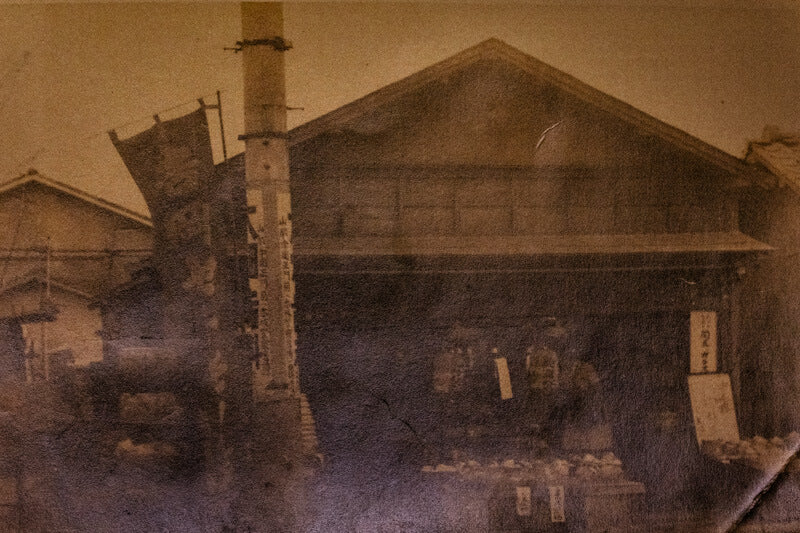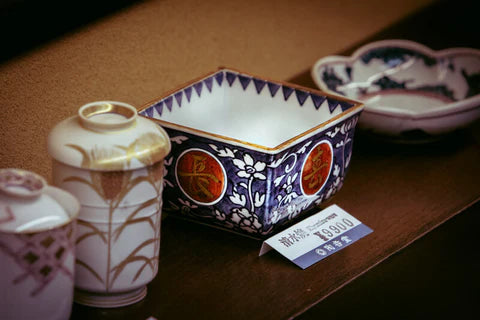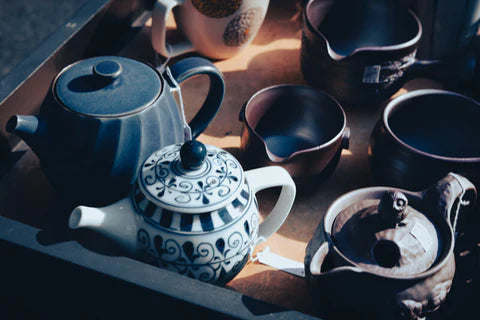

Community Leadership and Collaboration
To the family that runs Tokodo, Akasaka is far from a mere business location. It’s the place that watched Tokodo start its company from scratch, and the home where Mr. Yoshioka grew up. “I was born and raised in this town, so I want to take good care of it,” he said. “I have a good foundation of friendship with my friends here, and I want to hold more publicity events to show the best parts of Akasaka to the outside world.” As of today, Mr. Yoshioka is the chairman of the board of directors of the Akasaka shopping district, playing a pivotal role in organizing local events and festivals. In this light, Tokodo functions as a significant pillar of support to businesses in the area, especially for those in the food and beverage industry. Given the large number of restaurants and ryotei in the area, the company’s network of clientele is significantly rooted in the area’s various entertainment boutiques. “The number of restaurants is increasing, and with those new business owners, we inevitably start talking about tableware,” he stated. As he explained, it’s not uncommon for Tokodo to receive requests from restaurant owners who want to refresh some of their tableware, or want entirely new collections to suit new customer needs. Fortunately, Tokodo is always ready to supply them with a bountiful selection of ceramics and pottery from all over Japan, crafted with the express purpose of elevating any dining experience.
Nonetheless, these collaborations fail to truly capture the full essence of Akasaka’s culture of solidarity and cooperation. In his interview, Mr. Yoshioka highlighted that it is exactly this unified spirit that is one of the most unique features of the area. “If you ask people from restaurants and other towns [what they think of their neighbors], they would usually say that they don't get along that well, or that they are rivals,” he said. In Akasaka, the opposite is true: instead of approaching one another with bitter competition in mind, these business owners have instead fostered a wide network of mutual support and local camaraderie.
As Yoshioka stressed, Akasaka’s business owners hold a deep sense of ownership over the area, and their collaborative efforts have so far been the key to their success. As Yoshioka described, this was particularly evident during the New Year’s Day earthquake in the Noto peninsula. “After the earthquake, some of the farmers and fishery products lost their customers,” he recalled. The businesses in Akasaka immediately stepped in to fill the void. “When a supplier says, "we have a problem, but we don't know where we can handle it," everyone immediately raises their hands and distributes the goods,” he stated proudly. In a capitalist culture of hyper-competitiveness, the way Aksaka’s local businesses came together to support regional producers after the earthquake not only points to their responsiveness to the crisis, but underscores the deep-seated principles of mutual aid and resilience within its community.

Cultivating and Sustaining Local Culture
Given his personal history with the area, it was a pleasure hearing about Mr. Yoshioka’s personal insights of the area. Known for housing a majority of Tokyo’s CEOs, modern Akasaka is a central business bustling with the headquarters of large companies, but he recalled that the Akasaka of his childhood was “more like a downtown area”. “Akasaka is not that big a town. When I was a child, there were only four-story buildings at most in the shopping district, so there were many children playing catch around the area after returning home,” he reminisced. “So there are surprisingly few restaurants that have been in business for a long time. Not to mention the number of people who have come all the way to Akasaka to open new restaurants over the past 10 to 20 years. There are a lot of individual owners, and some of them have become very close friends through this opportunity.”
During festivals and events, Mr. Yoshioka described how they draw upon Akasaka's collaborative spirit to open stalls together. This not only integrates Tokodo's products into local traditions and celebrations, but boosts the overall community spirit. “We also play golf together twice a year, so we’re all pretty close,” he said fondly. When asked about his plans for the future of the community, he told Kyomi that they are planning to construct a tea ceremony trail to celebrate the vibrant cultural history of Akasaka. “We have been trying to get a budget for that as well, and I think it will probably take about 4 or 5 years to complete,” he said. However the project unfolds, we are certain it will be filled with beautiful ceramics and the unique warmth of Akasaka’s communal spirit.
Just as Akasaka has transitioned from a samurai residence to a bustling business district, Tokodo has also evolved to cater to the changing needs of its clientele, be it local restaurants looking to refresh their tableware or foreign tourists searching for a small treasure to bring home. Despite these changes, Tokodo remains a custodian of Japanese ceramic traditions, determined to represent not only Japan’s rich legacy of artisanal excellence, but Akasaka’s enduring warmth and vibrancy.
Just as Akasaka has transitioned from a serene samurai residence to a dynamic, bustling business district, so too has Tokodo adapted, evolving to cater to the ever-changing needs of its clientele. Whether it's local restaurants seeking fresh tableware or curious foreign tourists on the hunt for that perfect, small treasure to carry back home, Tokodo meets these diverse demands with steadfast dedication. Despite the waves of change that have swept through its doors, Mr. Yoshioka’s interview reflects how Tokodo has remained a guardian of Japan's rich ceramic traditions. With its gleaming shelves of ceramic and glass, it serves as a testament to not only Japan’s legacy of artisanal excellence, but also to Akasaka’s enduring warmth and vibrancy.



